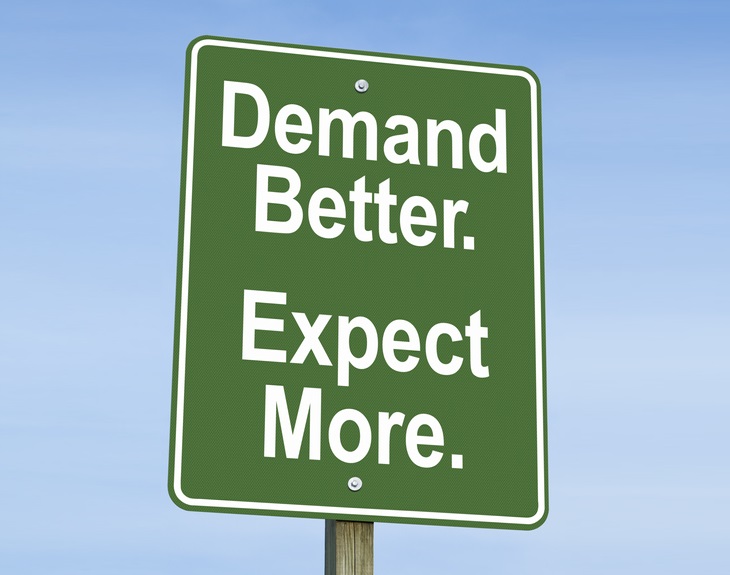
My company owns and manages apartments. I’m well past retirement age, in my 70’s, my official title is Chair and my responsibilities, such as they are, are all strategic. Yet I still get out on site and walk vacant apartments to ensure they are ready to rent. Why? Because I prioritize the field over the office, firsthand knowledge/experience over secondhand reports. Because to me, ‘Expect the Best and Inspect for What You Expect’ is not a hollow slogan but a lifelong creed, a fundamental core value. As a leader I owe a duty to our Residents, to our Customers, to deliver on our brand promise, to provide a quality living experience. To do anything less is to shirk my responsibility.
I recently visited a community that was struggling with occupancy due to an oversupply of new apartments. The clubhouse was empty, the community manager and a leasing specialist the only living souls present, things were slow, seemingly molasses slow. Thus, I was particularly surprised and disappointed to find two apartments marked ‘Ready’ that were definitely not ready for occupancy, especially since I only randomly checked just four out of roughly two dozen vacant apartments. As an owner/investor, both of the apartment community and of the operating company that manages it, I rely upon the reports I receive to be reliable and accurate. To find such errors and inaccuracies shakes both one’s confidence and trust.
However, that was not my greatest frustration. What concerned me much more was that the community manager might have caught the ‘Office Disease’. Nine times out of ten, getting out of the office and into the field, walking whatever is your equivalent of the factory floor, is more productive, more beneficial than finishing up the last of the paperwork or clearing out your email. Even in busy times, our community managers are responsible for getting out and ensuring vacant apartments are move-in ready; slow times create an opportunity to put on an extra sparkle and struggling markets call for additional effort.
We go out in the field looking for opportunities to praise. If the community manager had told us “Issues popped up with apartment A & B and I didn’t have a chance to pull them off the Ready Report” that would have been fine, impressive proactive communication. To be clear, my unhappiness was not really with the site staff for accountability flows upward. The regional community manager is responsible for ensuring the community manager understands and delivers the full scope of her charge and is effective and productive and the same with the VP of Operations re the regional community manager and so on. Each has their duty and the proper fulfillment thereof requires follow through i.e. sufficient first hand eyeballing to verify standards are met or exceeded.
It doesn’t take much; a little bit of oversight goes a long way; I was on site for less than 40 minutes. By taking the initiative to get out of the office and into the field, I learned more than I ever could have learned at my desk. Getting out from behind their desk is one of the most productive things one can do. The Team Member that demonstratives the initiative to learn all they can about every aspect of their job, that goes above and beyond will go far in life.
Closing Quotes:
“Initiative is doing what needs to be done without being told.” – Victor Hugo, 1802-1885
“There is very little difference between people, but that little difference makes a big difference.” – W. Clement Stone, 1902-2002
“Taking initiative is a form of self-empowerment. Employers need people who can think for themselves – who can take initiative and be the solution to problems.” – Stephen R. Covey, 1932-2012
As always, I share what I most want and need to learn. – Nathan S. Collier

